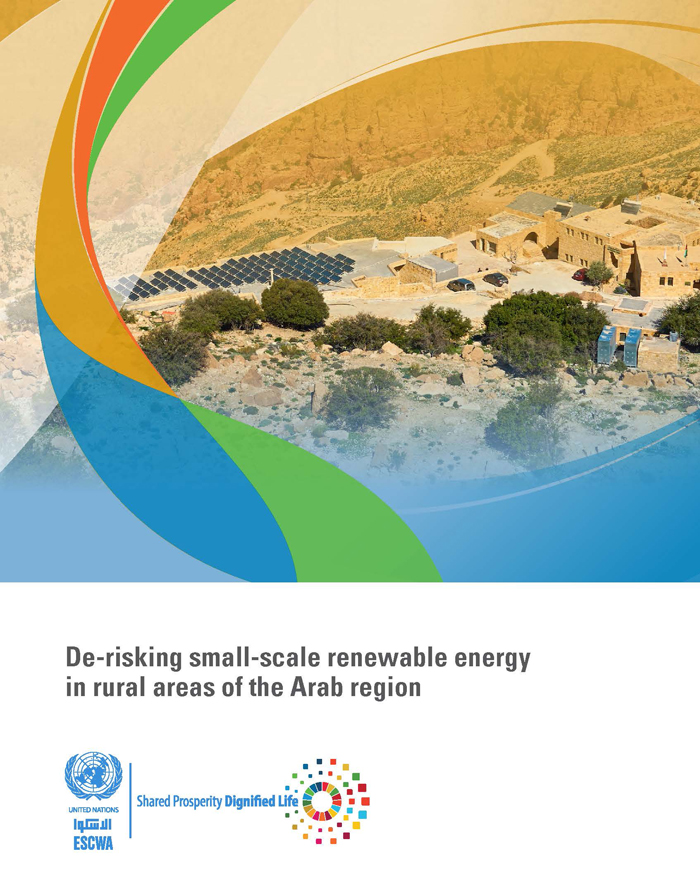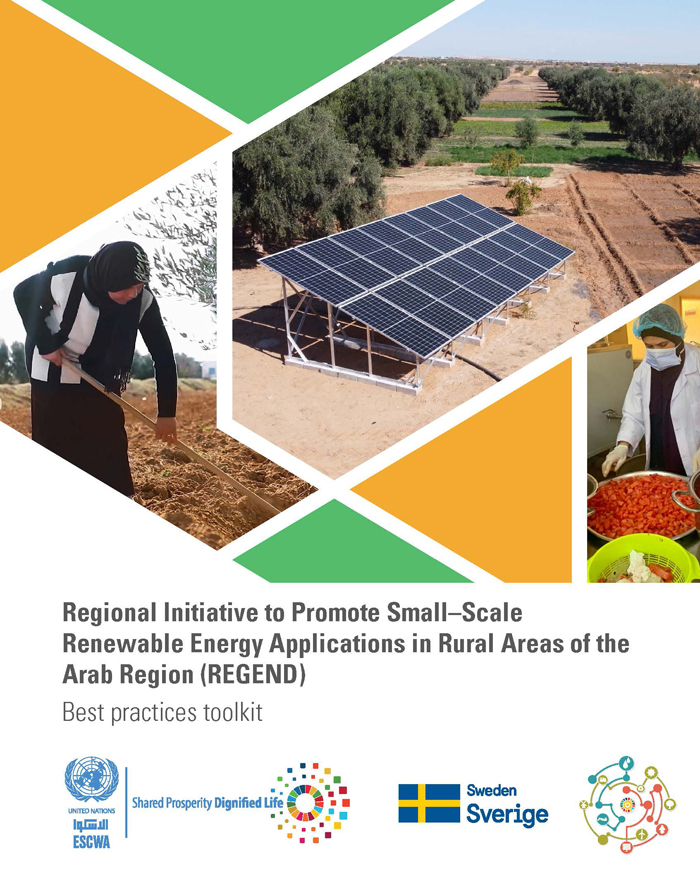ESCWA Publication: E/ESCWA/SDPD/2019/4
Publication Type: Reports & studies
Cluster: Climate Change and Natural Resource Sustainability
Focus Area: 2030 Agenda, Natural resource sustainability
SDGs: Agenda 2030
Keywords: Arab countries, Food security
Tracking Food Security in the Arab Region
January 2019
The publication presents and applies the Arab Regional Food Security Monitoring Framework developed by the Economic and Social Commission of Western Asia (ESCWA). The Framework aims to help countries effectively assess their food security situation. It was developed in collaboration and partnership with Arab countries, the Arab Organization for Agricultural Development (AOAD) and the Food and Agriculture Organization of the United Nations (FAO) and experts with support from the Swedish International Development Cooperation Agency (Sida). It accounts for the complexity and multidimensionality of food security along its multipronged definition and allows the monitoring of selected targets of the Sustainable Development Goals. The framework tracks food security through three outcome indicators grouped under a core pillar and 21 causal indicators distributed along the four food security dimensions of availability, access, utilization and stability.
The publication outlines the Framework’s development process and rationale for selecting the indicators and introduces an innovative way to show results in the form of a dashboard composed of a double doughnut chart visualizing performance and a table summarizing key statistics and trends. It also presents the key results of tracking food security at the Arab regional level and the trend over the considered years. It shows that the region records poor performance for all three of the outcome indicators of undernourishment, food insecurity experience and obesity while also presenting the performance and trends for the remaining 21 other indicators. It identifies yields, food import dependency, logistics, food price volatility and low political stability as hotspots needing urgent action, among others. It also reveals declining trends in the prevalence of undernourishment and obesity as well as dietary energy supply, use of water in agriculture and unemployment, to name a few. The publication includes an indicator-by-indicator analysis and outlines selected recommendations.
Related content
2030 Agenda
, Natural resource sustainability
,
The publication presents and applies the Arab Regional Food Security Monitoring Framework developed by the Economic and Social Commission of Western Asia (ESCWA). The Framework aims to help countries effectively assess their food security situation. It was developed in collaboration and partnership with Arab countries, the Arab Organization for Agricultural Development (AOAD) and the Food and Agriculture Organization of the United Nations (FAO) and experts with support from the Swedish International Development Cooperation Agency (Sida). It accounts for the complexity and multidimensionality of food security along its multipronged definition and allows the monitoring of selected targets of the Sustainable Development Goals. The framework tracks food security through three outcome indicators grouped under a core pillar and 21 causal indicators distributed along the four food security dimensions of availability, access, utilization and stability.
The publication outlines the Framework’s development process and rationale for selecting the indicators and introduces an innovative way to show results in the form of a dashboard composed of a double doughnut chart visualizing performance and a table summarizing key statistics and trends. It also presents the key results of tracking food security at the Arab regional level and the trend over the considered years. It shows that the region records poor performance for all three of the outcome indicators of undernourishment, food insecurity experience and obesity while also presenting the performance and trends for the remaining 21 other indicators. It identifies yields, food import dependency, logistics, food price volatility and low political stability as hotspots needing urgent action, among others. It also reveals declining trends in the prevalence of undernourishment and obesity as well as dietary energy supply, use of water in agriculture and unemployment, to name a few. The publication includes an indicator-by-indicator analysis and outlines selected recommendations.


